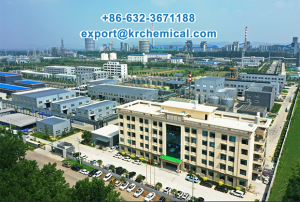The main function of natural chelating agents is to bind and sequester metal ions, preventing them from participating in unwanted chemical reactions. This capability makes them useful in various applications, particularly in environmental, agricultural, and medical fields. Key functions and uses of natural chelating agents include:
- Metal Detoxification: Chelating agents can bind toxic metal ions, such as lead, mercury, and cadmium, and facilitate their removal from the body or environment, reducing toxicity and preventing harmful effects.
- Nutrient Availability: In agriculture, it improve the availability of essential micronutrients (e.g., iron, zinc, manganese) to plants by forming soluble complexes with these metals, enhancing their uptake and utilization.
- Water Treatment: Chelating agents are used in water treatment processes to sequester metal ions, preventing scale formation and improving the effectiveness of disinfectants.
- Food Preservation: In the food industry, It are used to stabilize color, flavor, and texture by binding metal ions that could catalyze oxidation and spoilage reactions.
- Medicine and Health: It are used in chelation therapy to treat metal poisoning and certain medical conditions by binding and promoting the excretion of excess or toxic metal ions from the body.
- Industrial Cleaning: It are employed in cleaning formulations to remove metal deposits and prevent scale formation on surfaces and equipment.
- Cosmetics and Personal Care: In cosmetics, it stabilize formulations by binding metal ions that could cause degradation of active ingredients or discoloration.
Some examples of natural chelating agents include:
- Citric Acid: Found in citrus fruits, it is commonly used in food, cleaning products, and industrial applications.
- Phytic Acid: Present in seeds, grains, and legumes, it is used in food preservation and as an antioxidant.
- Amino Acids: Such as ethylenediaminetetraacetic acid (EDTA) and its natural analogs, used in various industrial and medical applications.
Natural chelating agents offer an environmentally friendly alternative to synthetic chelating agents, providing effective metal ion management with reduced ecological impact.

